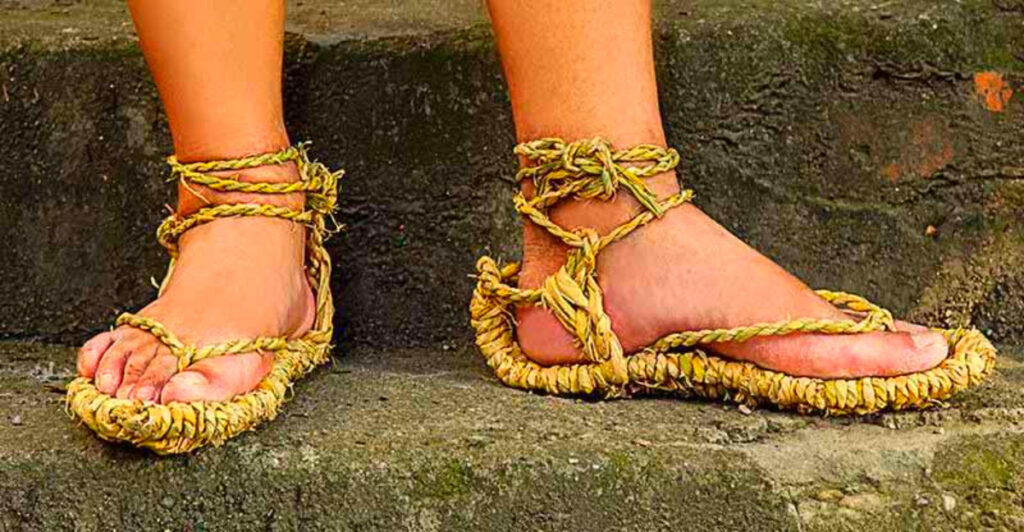Walking through foreign streets opens your eyes to amazing sights, sounds, and smells. But sometimes the most surprising discoveries happen right at ground level. From ancient traditions to creative survival gear, the shoes people wear around the world can tell incredible stories about culture, climate, and creativity that no guidebook ever mentions.
1. Wooden Clogs in the Netherlands
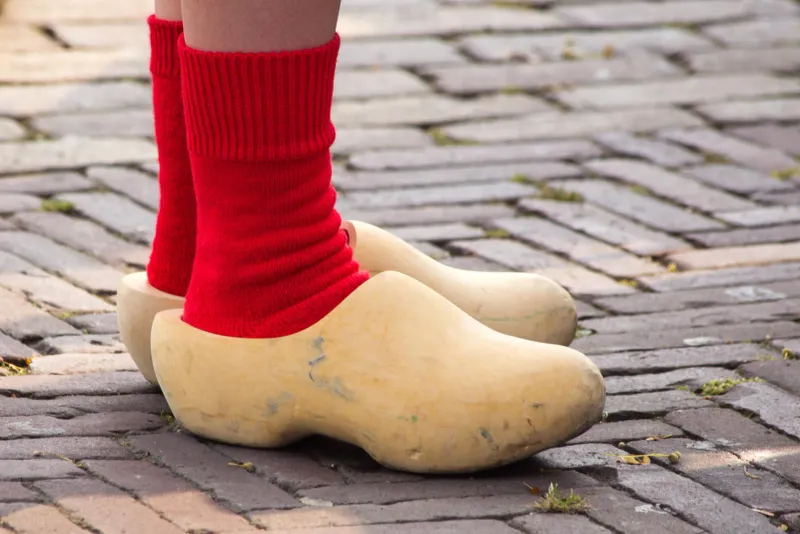
Clomping down cobblestone streets, Dutch clogs aren’t museum pieces but living history. These wooden shoes protected farmers’ feet from wet fields and sharp tools for centuries.
Modern Dutch people still slip them on for gardening or quick trips outside. The hollow wood design keeps feet surprisingly comfortable and dry.
Hearing that distinctive wooden tap-tap-tap echoing through Amsterdam’s narrow alleys connects you instantly to generations of Dutch tradition.
2. Grass Sandals in Japan
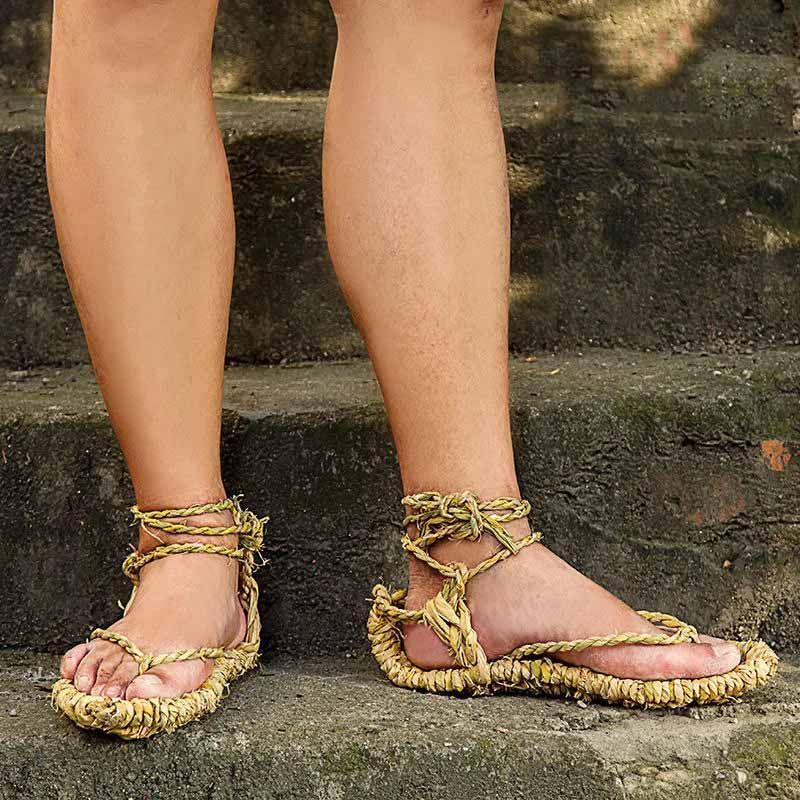
Monks padding silently through temple grounds often wear waraji, sandals woven entirely from rice straw. These ancient shoes once carried samurai warriors across battlefields.
The rough straw provides surprising grip on wet temple stones and wooden walkways. Festival-goers sometimes choose them to honor old customs during traditional celebrations.
Watching someone tie the complex rope fastenings reveals skills passed down through countless generations of Japanese craftspeople.
3. Felt Boots in Russia
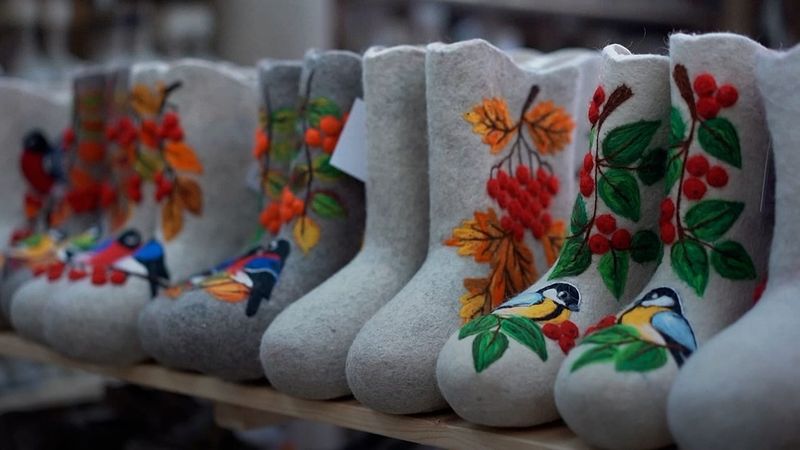
Siberian winters demand serious footwear, and valenki deliver warmth like nothing else. These thick felt boots look clunky but keep toes toasty in minus-forty weather.
Grandmothers often decorate them with bright embroidered flowers and geometric patterns. The felted wool naturally repels moisture while trapping body heat inside.
Spotting someone confidently trudging through deep snow in these bulky boots shows you’ve found a true cold-weather survivor.
4. Pointy Mojari in India
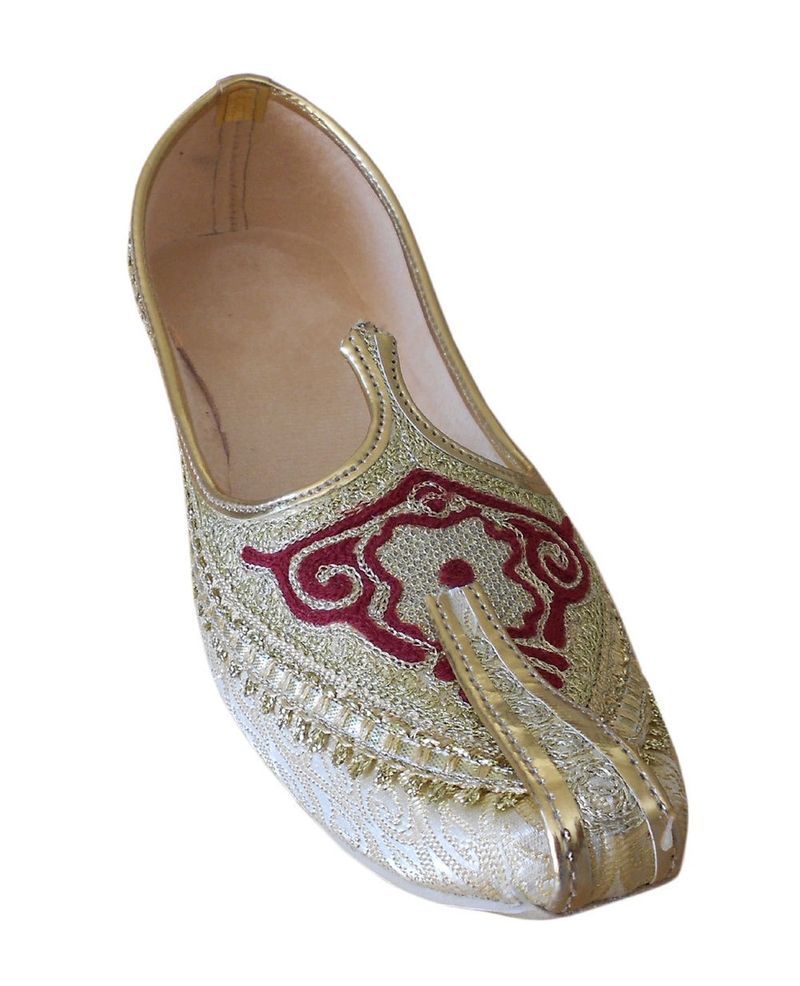
Wedding celebrations explode with color, especially when grooms wear mojari with dramatically curled toes. Skilled artisans hand-stitch each pair using supple leather and golden threads.
The pointed tips supposedly ward off evil spirits while intricate beadwork tells family stories. Different regions create unique patterns and toe curves.
Watching dancers spin in these ornate shoes during festival performances shows how beauty and tradition merge in everyday Indian life.
5. Platform Chopines in Venice
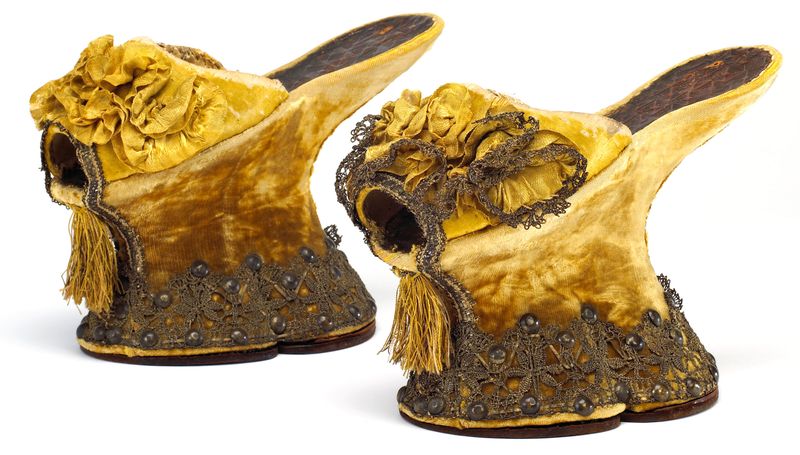
Renaissance noblewomen once towered on chopines reaching nearly twenty inches high, making today’s platform shoes look tiny. These wooden stilts protected expensive gowns from muddy streets.
Venice’s museums occasionally display original pairs alongside historical paintings. Some cultural festivals feature performers recreating the wobbly, dignified walk these shoes required.
Imagining daily life balanced on such extreme platforms shows how fashion and practicality created truly unusual solutions in historical Venice.
6. Alpaca-Wool Slippers in Peru
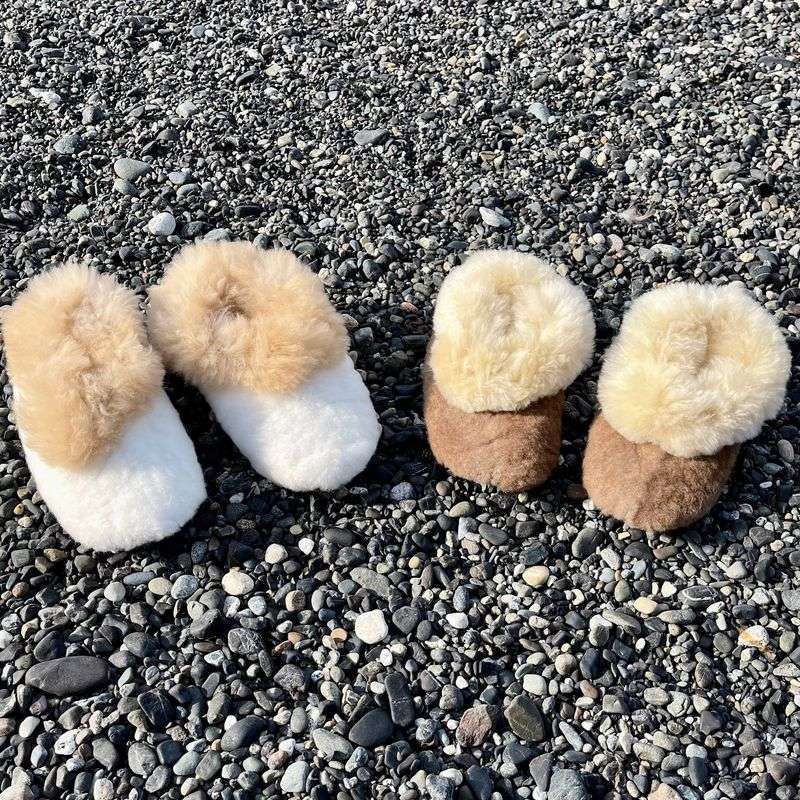
Mountain markets overflow with hand-knitted slippers featuring adorable alpaca faces and rainbow colors. Local artisans spend days creating each pair using wool from their own herds.
The natural fibers regulate temperature perfectly, keeping feet warm during chilly Andean evenings. Tourists often buy multiple pairs for family back home.
Slipping these cozy treasures on after hiking Machu Picchu feels like receiving a warm hug from Peruvian mountain culture itself.
7. Flip-Flops Made from Tires in Africa
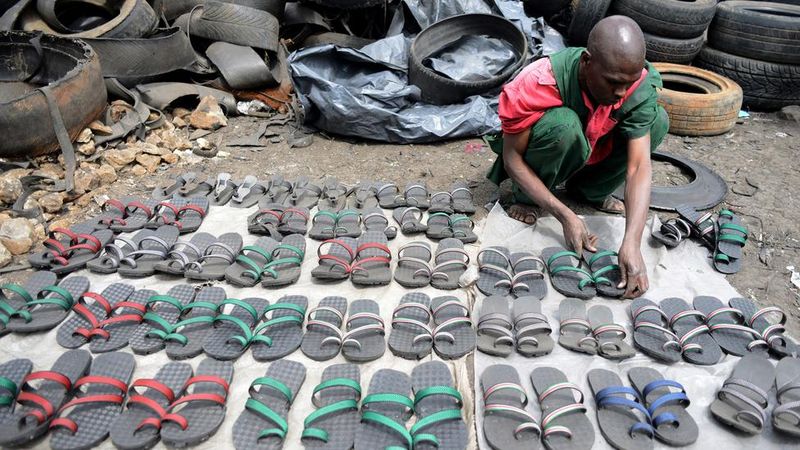
Resourceful craftspeople transform discarded truck tires into incredibly durable sandals that outlast expensive imported shoes. Sharp knives and skilled hands create comfortable soles from rubber waste.
These eco-friendly sandals cost a fraction of store-bought alternatives while providing excellent traction. Different tire treads create unique patterns on each pair.
Witnessing this brilliant recycling innovation shows how creativity and necessity combine to solve problems in remarkable ways.
8. Cowboy Boots in Unexpected Places
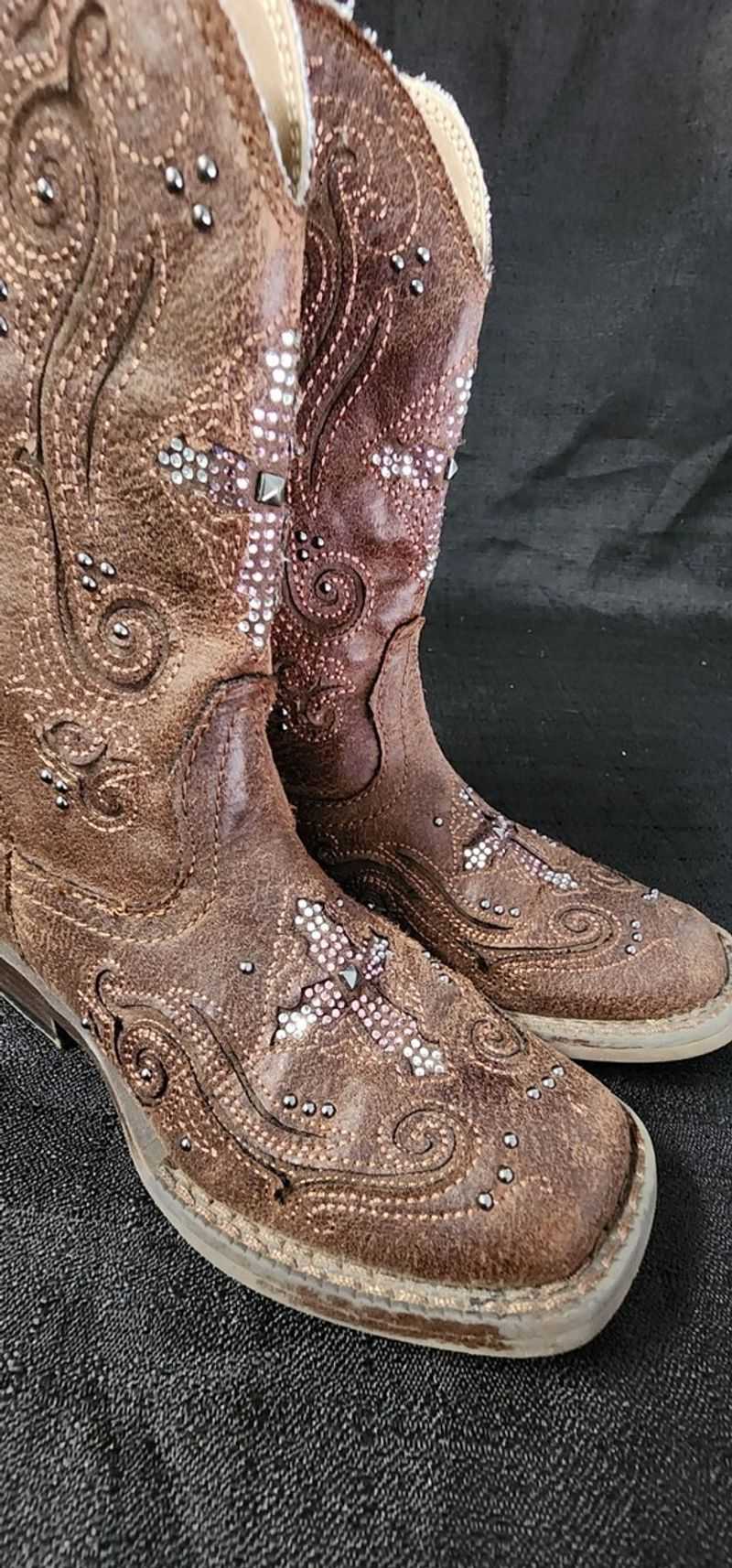
Tokyo fashionistas strut in rhinestone-covered cowboy boots that would make Texas ranchers jealous. These aren’t work boots but high-fashion statements mixing Eastern and Western styles.
Argentine gauchos prefer practical leather versions for actual horseback riding. Mexican charros choose elaborate designs with silver details for special celebrations.
Finding cowboy boots in surprising global locations proves how American Western culture galloped far beyond its original borders.
9. Beaded Maasai Sandals in Kenya
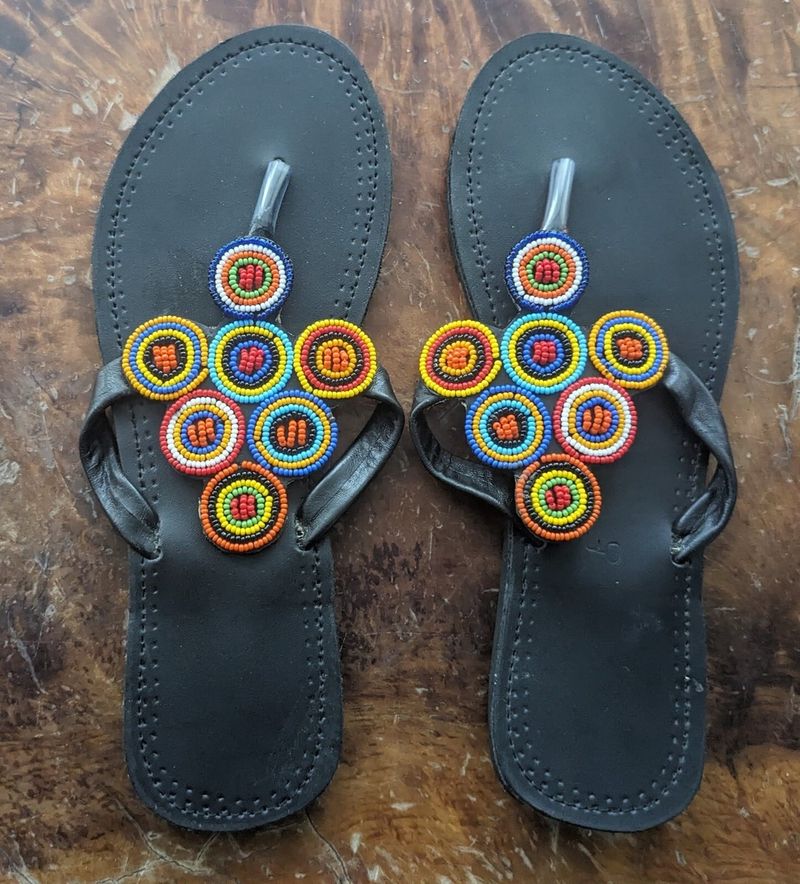
Maasai artisans transform simple leather into walking art using thousands of tiny colored beads arranged in traditional patterns. Each design tells stories about family, age, and social status.
The geometric patterns use colors with specific meanings in Maasai culture. Red symbolizes bravery, while blue represents the sky and energy.
Purchasing these handcrafted sandals directly supports Maasai communities while bringing home a piece of authentic East African artistic heritage.
10. Snowshoe Sandals in Alaska
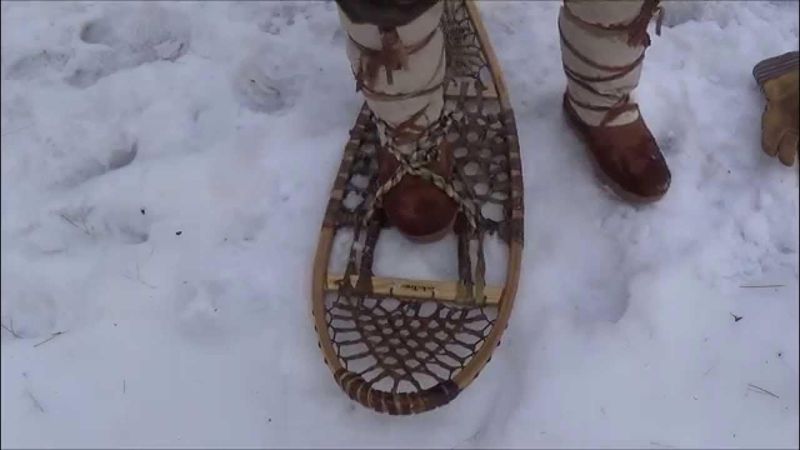
Alaskan ingenuity creates hybrid footwear combining regular shoes with mini snowshoe frames for walking on deep powder. These contraptions look bizarre but work brilliantly for survival.
Locals attach lightweight frames to existing boots using simple straps and buckles. The wide surface distributes weight, preventing dangerous falls through snow.
Seeing someone confidently navigate frozen landscapes in these improvised shoes demonstrates how harsh environments inspire creative survival solutions.

